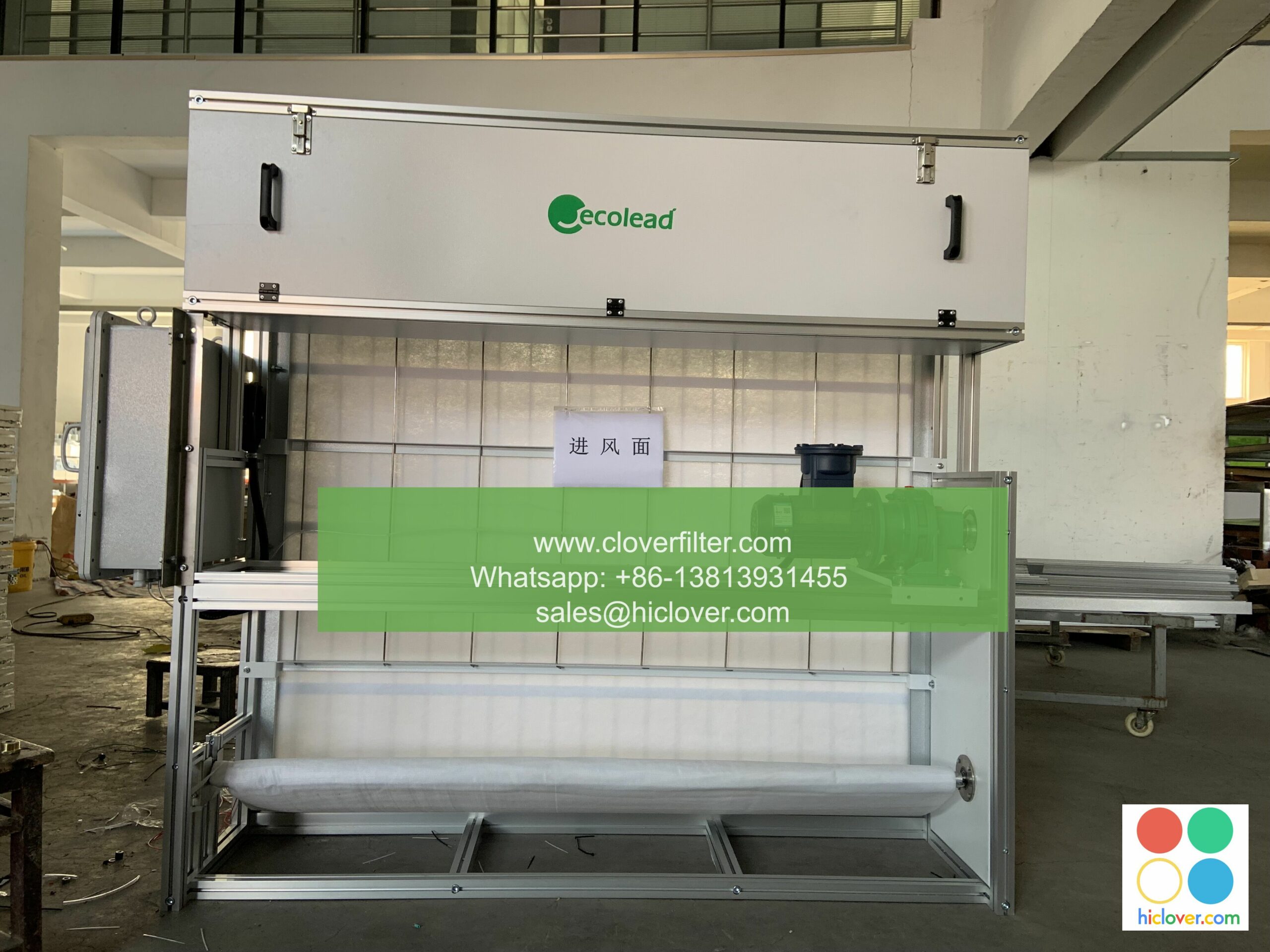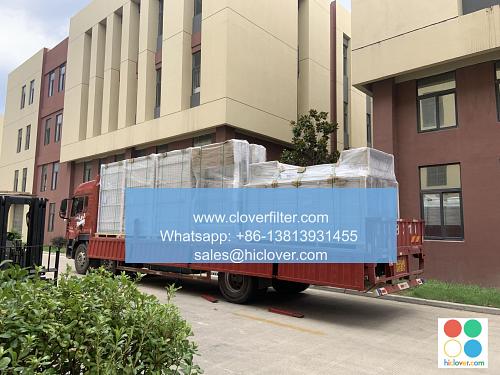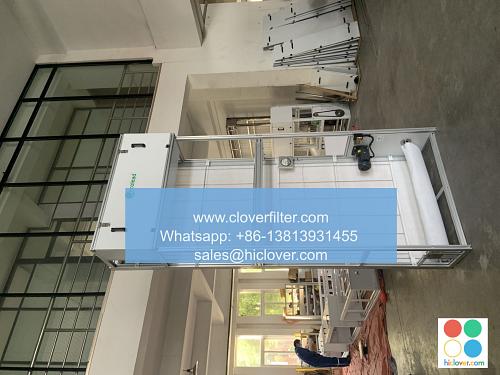The Importance of Regular Maintenance for Automatic Roll Air Filters in Biotech Labs

Automatic roll air filters are a crucial component in biotech labs, playing a vital role in maintaining a sterile and contamination-free environment. These filters are designed to remove airborne contaminants, such as dust, pollen, and microorganisms, from the air, ensuring the quality and integrity of the research and experiments being conducted. However, like any other equipment, automatic roll air filters require regular maintenance to function optimally and prevent downtime, contamination, and other issues.
Regular maintenance of automatic roll air filters is essential to prevent the buildup of dirt, dust, and other contaminants on the filter media. If left unchecked, this buildup can lead to a decrease in airflow, increased pressure drop, and reduced filter efficiency. Moreover, a clogged filter can also lead to the growth of microorganisms, which can contaminate the lab environment and compromise the research. By performing regular maintenance, lab technicians can ensure that the filters are cleaned or replaced as needed, maintaining optimal airflow and filter efficiency.
Another critical aspect of regular maintenance is the prevention of filter failure. Automatic roll air filters are designed to operate continuously, and if they fail, it can lead to costly downtime, contamination, and even equipment damage. Regular maintenance can help identify potential issues before they become major problems, allowing lab technicians to take proactive measures to prevent filter failure. This includes monitoring filter performance, checking for signs of wear and tear, and performing routine cleaning and replacement tasks.
In addition to preventing downtime and contamination, regular maintenance of automatic roll air filters can also help improve lab productivity and efficiency. By ensuring that the filters are operating at optimal levels, lab technicians can minimize the time spent on maintenance and maximize the time spent on research and experiments. Moreover, regular maintenance can also help extend the lifespan of the filters, reducing the need for frequent replacements and minimizing waste.
Best practices for maintaining automatic roll air filters in biotech labs include establishing a routine maintenance schedule, monitoring filter performance, and performing regular cleaning and replacement tasks. Lab technicians should also ensure that the filters are installed, operated, and maintained in accordance with the manufacturer’s instructions and guidelines. Additionally, it is essential to keep accurate records of maintenance activities, including filter replacements, cleaning schedules, and performance data.
Furthermore, regular maintenance of automatic roll air filters can also help labs comply with regulatory requirements and industry standards. Biotech labs are subject to strict regulations and guidelines, including those related to air quality, contamination control, and equipment maintenance. By performing regular maintenance, labs can demonstrate their commitment to compliance and ensure that their equipment is operating in accordance with regulatory requirements.
In conclusion, regular maintenance of automatic roll air filters is crucial for biotech labs to ensure a sterile and contamination-free environment, prevent downtime and contamination, and improve lab productivity and efficiency. By establishing a routine maintenance schedule, monitoring filter performance, and performing regular cleaning and replacement tasks, lab technicians can ensure that the filters are operating at optimal levels and extend their lifespan. Regular maintenance is essential for complying with regulatory requirements, reducing waste, and minimizing the risk of filter failure.
Conclusion
In summary, regular maintenance of automatic roll air filters is essential for biotech labs to maintain a sterile and contamination-free environment, prevent downtime and contamination, and improve lab productivity and efficiency. By prioritizing regular maintenance, labs can ensure the integrity and quality of their research and experiments, comply with regulatory requirements, and minimize the risk of filter failure.
FAQs
Q: How often should I perform maintenance on my automatic roll air filters?
A: The frequency of maintenance will depend on the specific application, usage, and manufacturer’s recommendations. However, as a general rule, filters should be inspected and cleaned every 1-3 months, and replaced every 6-12 months or as needed.
Q: What are the consequences of not performing regular maintenance on automatic roll air filters?
A: Failure to perform regular maintenance can lead to a range of issues, including decreased filter efficiency, increased pressure drop, contamination, downtime, and equipment damage.
Q: Can I perform maintenance on my automatic roll air filters myself, or do I need to hire a professional?
A: While some maintenance tasks can be performed in-house, it is recommended to consult the manufacturer’s instructions and guidelines to determine the best course of action. In some cases, it may be necessary to hire a professional to perform more complex maintenance tasks or repairs.
Q: How can I ensure that my automatic roll air filters are installed, operated, and maintained in accordance with regulatory requirements?
A: To ensure compliance with regulatory requirements, labs should consult the relevant guidelines and standards, such as those related to air quality, contamination control, and equipment maintenance. Additionally, labs should establish a routine maintenance schedule, keep accurate records of maintenance activities, and ensure that all personnel are trained and competent in filter maintenance and operation.


